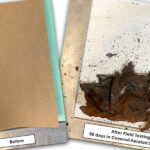Top: In the court case, consumers claimed that the dog poop bags were marketed as “certified compostable” and that this was false or misleading.
Matthew A. Karmel
“Dog poop bags” have been subject to many allegations of greenwashing over the years, and the allegations continue in recent litigation involving claims that one manufacturer’s “dog poop bags” were “certified compostable.” While “dog poop bags” are somewhat unique among compostables given the limited number of composting facilities that will accept them (and that the Biodegradable Products Institute generally does not certify as compostable), the ongoing litigation contains lessons for any company marketing a product as “compostable” in the United States.
In the recent litigation, Natale v. 9199-4467 Quebec Inc., No. 21-CV-6775 (JS)(SIL) (E.D.N.Y. July 28, 2023), two consumers filed suit in Federal Court in New York against a manufacturer that sold a range of “certified compostable” dog poop bags. Using various legal theories, the consumers claimed that the dog poop bags were marketed as “certified compostable” and that this was false or misleading, and perhaps intentionally misleading, based on several factors including the lack of composting facilities that will accept dog poop bags because they do not accept pet waste.
The Federal Trade Commission (FTC), which regulates claims involving environmental benefits through the Federal Trade Commission Act and regulations commonly referred to as the “Green Guides,” previously issued a warning to sellers of dog poop bags that their compostable claims may be deceptive because of the lack of facilities that accept pet waste. There also have been several other greenwashing suits against sellers of dog poop bags. However, despite this history of greenwashing, the manufacturer moved to dismiss the consumers’ claims, which required the Court to evaluate the claims after taking all facts alleged by the consumers as true and drawing all reasonable inferences in favor of the consumers. Based on this standard, the Court refused to dismiss most of the consumers’ claims and will allow the litigation to proceed.
Lessons For Compostable Product Marketing
While the manufacturer could ultimately succeed in defending against the greenwashing claims as the litigation progresses, this preliminary decision offers several lessons for any company marketing a product as “compostable” in the United States, including:
- Qualifications of “compostable” claims should be clear and prominent. The manufacturer argued that it complied with the Green Guides by “clearly and prominently” including an appropriate qualification of the compostability claim. However, at this stage in the litigation, the Court determined that a small disclaimer on the back of the packaging may not be considered “clear and prominent.”
- Qualifications of “compostable” claims should match the Green Guides or appropriate industry standards as closely as possible. In allowing the greenwashing claims to proceed, the Court also noted that the disclaimers used by the manufacturer did not exactly match the examples in the Green Guides, both in terms of language and because of the specific facts applicable to the product (e.g., because poop bags may not be compostable even at commercial facilities). When our firm reviews packaging on behalf of our clients, we have also seen different wording used to qualify “compostable” claims. While there may be specific circumstances that warrant using unique wording for a particular product, this should be done sparingly and after considering the risks.
- Certified compostable claims should be consistent across media and clearly qualified. In refusing to dismiss the claims, the Court also appeared to side against the manufacturer because of the inconsistent nature of its disclaimers on different products and on the website. The inconsistencies in this instance were somewhat egregious but given the different teams responsible for packaging and marketing materials, it is critical to coordinate and maintain consistent messaging of “compostable” claims and applicable qualifications.
- Manufacturers should be aware of certain risk factors that may increase the likelihood of potential claims. As noted above, the FTC previously provided warnings to dog poop bag manufacturers that claims of compostability may be misleading given that dog poop may not be safe for backyard composting and given that some composting facilities may not accept pet waste. These previous warnings provided a red flag that should have led to further scrutiny of the claims on the packaging and website. There are other relevant risk factors based on other FTC actions as well as private litigation. Brands should carefully consider these risk factors when marketing products.
- Courts may allow plaintiffs to allege fraudulent intent in connection with greenwashing claims, which could give rise to additional damages. While damages in greenwashing cases can already be substantial and can go far beyond traditional monetary amounts to the reputational issues that are “brand killers,” monetary damages may be greater where willfulness or intent to deceive are demonstrated, as the Court suggested may be the case here, and can include punitive damages, disgorgement of profits, and attorneys’ fees depending on applicable laws.
Given the increasing focus on greenwashing, companies should review their claims in light of these lessons, and should continue to monitor developments, including the pending updates to the Green Guides which may be released sometime in 2024.
Matthew A. Karmel, Esq. is chair of Offit Kurman’s Environmental and Sustainability Law Group, and provides comprehensive legal assistance to composters and other members of the organics recycling industry. He also helped found the NJ Composting Council and its Advocacy and Market Development Committee.










